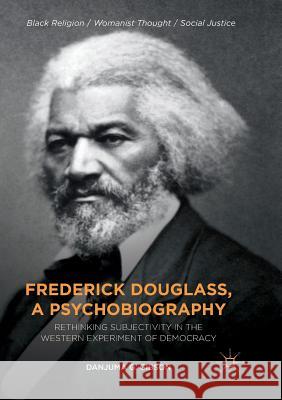Frederick Douglass, a Psychobiography: Rethinking Subjectivity in the Western Experiment of Democracy » książka
topmenu
Frederick Douglass, a Psychobiography: Rethinking Subjectivity in the Western Experiment of Democracy
ISBN-13: 9783030091767 / Angielski / Miękka / 2019 / 192 str.
Kategorie:
Kategorie BISAC:
Wydawca:
Palgrave MacMillan
Seria wydawnicza:
Język:
Angielski
ISBN-13:
9783030091767
Rok wydania:
2019
Wydanie:
Softcover Repri
Ilość stron:
192
Waga:
0.24 kg
Wymiary:
21.01 x 14.81 x 1.09
Oprawa:
Miękka
Wolumenów:
01
Dodatkowe informacje:
Wydanie ilustrowane











